

Tao Te Ching
Search Sages
Enter all or part of an sage's name or biography in the fields below, then press tab or enter to filter the list of Authors. Click the headings Name or Biography to sort by that column. Diacritics are ignored when searching.
Click on the author's name to go to their page.
| Author Name | Biography |
|---|---|
| Wang Zhen | 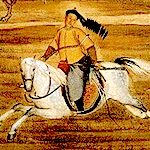 Wang Zhen Wang ZhenWang Zhen (FL. 809) |
| Woody Allen | 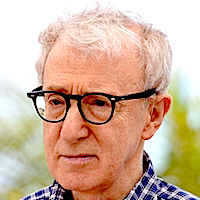 Woody Allen Woody AllenWoody Allen, Allan Stewart Konigsberg (1935 - ) |
| Yayoi Kusama | 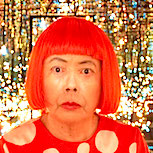 Yayoi Kusama Yayoi KusamaYayoi Kusama 草間 彌生 (1929 - ) One of the Top 10 Living Artists, 2014’s most popular artist of the year, precursor and inspiration to Andy Warhol and the pop art movement, film writer/start, published novelist and poet named the most popular living artist; almost 90-year-old Yayoi Kusama set a record for a female artist when one of her works sold at Christie’s in New York for $5.1 million. During the counterculture’s 1960s, she organized a series of events that included naked, brightly painted withpolka dots participants. One of the world’s most important voices for the avant-garde, she has lived in a Japanese mental institution since 1973 creating hallucination-inspired “infinity nets” while organizing some of the world’s most popular art exhibitions. After creating art every day for over 70 years, she says she’s feeling “as creative as ever,” that “my mind is full of paintings,” and “I, Kusama, am the modern Alice in Wonderland.” |
| Yi-Ping Ong | 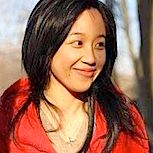 Yi-Ping Ong Yi-Ping OngYi-Ping Ong (c. 1978 - ) Johns Hopkins Assistant Professor, moral and political philosopher, author, human rights activist, and NGO volunteer director; Yi-Ping Ong helped republish the Charles Muller’s translation of the Tao Te Ching and added insightful notes on the chapters, the historical context, and the influence on both Chinese and world culture. A short story she wrote was chosen as one of the 100 Distinguished Stories of 2003 and her Ph.D. dissertation received a major Harvard University award. Although an academic who attended Columbia, Oxford, and Harvard Universities and is now a university professor; her groundedness in the simplicity of Lao Tzu’s vision seems to maintain an allegiance to the sense over the words, reality over ambition, and wu wei over dualistic gaining ideas. |
| Yin Xi | 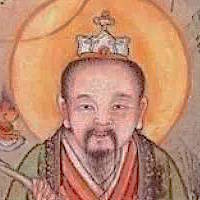 Yin Xi Yin XiLao Tzu’s first disciple and Taoist patriarch Yin Xi, Yin Hsi, Guan Yin Zi 關尹子 (fl. 6th century BCE) |
| Lionel Robbins | 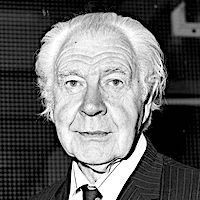 Lionel Robbins Lionel RobbinsBritish economist who redefined the scope of economics |
| Dazu Huike |  Dazu Huike Dazu HuikeStudent of and lineage holder after Bodhidharma, 29th Zen Patriarch, 2nd Chinese Patriarch of Chan, insightful scholar of both Taoism, Buddhism, and ancient Chinese texts; Huike received the title Dazu (“Great Ancestor”) from the Tang emperor De Zong. To choose a successor when Bodhidharma planned to return to India, he asked his disciples to express their realization. Each gave poetic answers but Huike only stood silently invoking Bodhidharma’s observation, “You have attained my marrow.” Hike’s teachings diverted from the Indian tradition of a gradual path and emphasized sudden enlightenment, realization through meditation rather than study, and practice free from any gaining ideas or dualism. |
| Philemon | 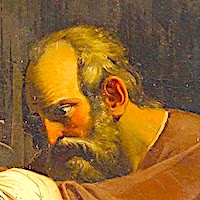 Philemon PhilemonAthenian poet and “New Comedy” playwright |
| Namkhai Norbu | 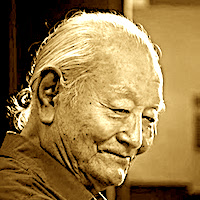 Namkhai Norbu Namkhai NorbuDzogchen Master
|
| Nagabodhi | 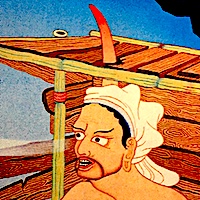 Nagabodhi Nagabodhi
|
| Wu Cheng | 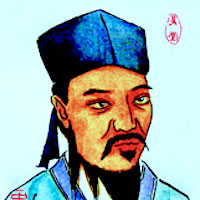 Wu Cheng Wu Cheng"Mr. Grass Hut"
|
| Ivan Illich | 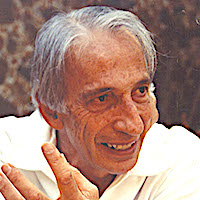 Ivan Illich Ivan Illich "an archaeologist of ideas"
|
| Guru Angad | 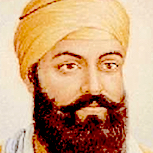 Guru Angad Guru Angad The son of a merchant, refugee from Babar’s invasion, and chosen as successor by Guru Nanak over his own sons; Angad developed Gurmukhi script, the main way of writing the Punjabi language. This helped give Sikhs a strong identity and ability to study ancient wisdom in their own language without need of translation and separate from the Sanskrit religious traditions and solidify Sikhism as a separate religion. He was also a strong influence in undermining the caste system and furthering the Sikh vision of equality. |
| Aciṅta | 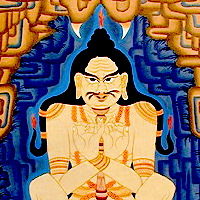 Aciṅta AciṅtaMahasiddha #38
|
| Bhikṣanapa | 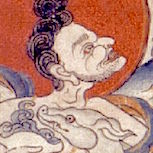 Bhikṣanapa BhikṣanapaMahasiddha #61
Low caste and very poor, Bhikshanapa unexpectedly inherited some wealth. Like most people today winning a lottery or inheriting unaccustomed riches, he quickly lost it all along with his fair-weather friends. This led to a period of intense self-loathing and depression but also an openness to meeting and hearing a teacher and new way of experiencing the world. Seeing through his consumerism andspiritual materialism, he metaphorically (and possibly physically too), lost all but two of his teeth which became symbols for the balance and harmony of wisdom and skillful means. Resuming his external life style of roaming from village to village, he transformed from a miserable, needy beggar only thinking about himself into a wonderful teacher constantly dedicated to helping others. Mahasiddha #61 |
| Koṭālipa | 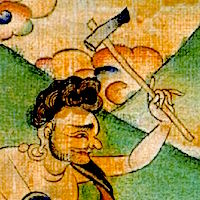 Koṭālipa KoṭālipaMahasiddha #44
|
| Arya Prajnadhara | 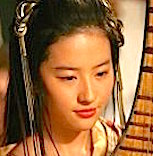 Arya Prajnadhara Arya Prajnadhara 27th Zen Patriarch, one of the few women Zen lineage leaders, and teacher of Bodhidharma; details about Arya Prajnadhara’s life are rare and difficult to find. Because of being a woman Patriarch in this predominantly male tradition and because of encouraging Arya Bodhidharma’s travels to China; although being almost completely unremembered by history, she had a huge influence on the evolution of Buddhism. Since her main disciple moved to China and Chán Buddhism mixed with Taoism, this influence in India diverted into the Maha Siddha tradition, spread to Tibet as Vajrayana, and reunited with Chán as Maha Ati or Dzogchen. |
| Soong Mei-ling | 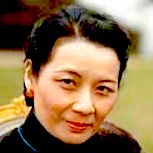 Soong Mei-ling Soong Mei-lingCalled by Life Magazine the "most powerful woman in the world,” by Ernest Hemingway the “empress” of China, and compared by Clare Boothe Luce to Florence Nightingale and Joan of Arc; Soong Mei-ling lived during 3 different centuries, was the Republic of China’s first First Lady, Sun Yat-sen’s sister-in-law, wife and political partner to Chiang Kai-shek. She worked hard fighting against the Japanese invasion of China, toured the USA trying to get support, and started extensive welfare projects and schools for orphans, and worked on many attempts to heal China’s political divisions. |
| Noor Inayat Khan | 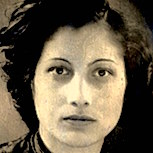 Noor Inayat Khan Noor Inayat KhanDaughter of the famous musician and teacher, Hazrat Inayat Khan who brought Sufism to the West; Noor was a skilled musician, studied medicine, and wrote children’s books. She became a hero to allied forces fighting against Nazi Germany in WWII and was given the George Cross, one of Britain's highest awards for bravery as well as a French Croix de Guerre. She followed her father’s teachings on non-violence but because of Hitler’s threat to Europe joined the British Air Force and then a secret British espionage group. She was the first woman spy to infiltrate occupied France and was later betrayed, captured, refused to cooperate or give information and was executed in a concentration camp. |
| Helen Pitts Douglass | 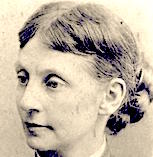 Helen Pitts Douglass Helen Pitts DouglassDescendant of Mayflower Pilgrims, Helen Pitts Douglass was a dedicated abolitionist active in the women’s rights movement. Putting her philosophy into practice, she went against her parents, friends. neighbors and subjecting herself to both white and black scorn, married an African American, Frederick Douglass. After he died, she spent years traveling and lecturing for social justice and established the Frederick Douglass memorial now administered by the National Park Service. |